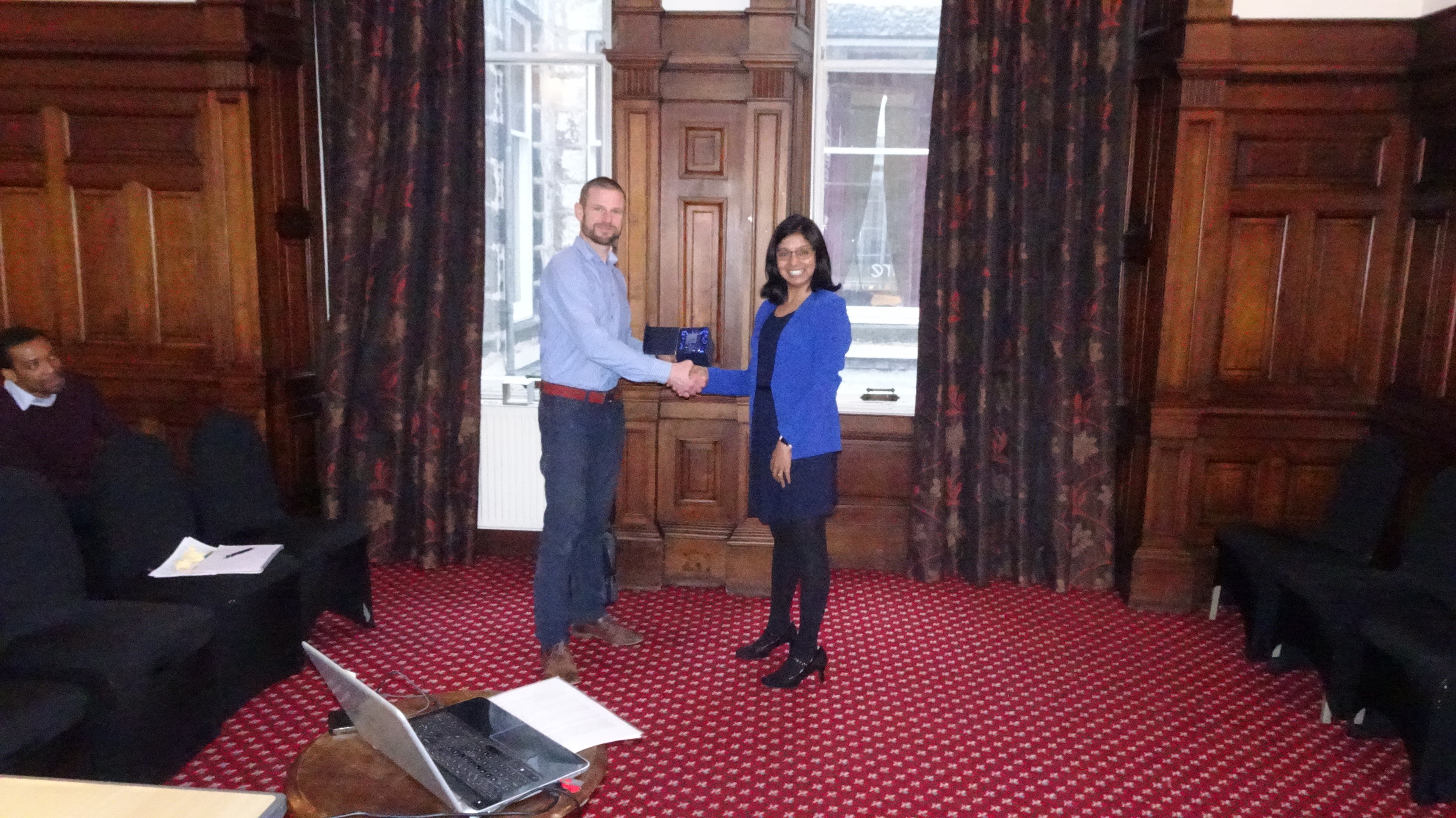
Many thanks Girvani Manoharan and Anelechi Ibekwe, our April student speakers from Aberdeen University. Two very interesting and very well received talks, great work!
Abstract:
The presence of fractures significantly influences the flow of fluids in a reservoir because of the large contrast in transmissibility between the fracture and the matrix. Therefore, more accurate prediction and characterisation of fractures hold significant potential for improving production by increasing the success and the efficiency of recovery processes. This paper discusses the crack propagation in a low strength Kirby sandstone sample (25 mm in diameter and 63 mm long) under triaxial stress conditions. The results demonstrate that combined neutron imaging with mechanical tests for macroscopic parameters provides new insights into the mechanics of fracture in geological materials.
Biography – Girvani Manoharan
I have always held a passion for academia, the pursuit of knowledge, and the practical application of science. I have diverse qualifications spanning physics (BSc), computing (BSc), biomedical engineering (MSc), and petroleum engineering (MSc). In addition to my academic qualifications, I have extensive knowledge of the oil and gas sector having worked as a reservoir engineer for three international operators. I worked as an Operations focused reservoir Engineer with Centrica and Maersk Oil Qatar, and before that as an Exploitation Engineer (Reservoir Engineer) with CNR International covering a number of assets across the North Sea.
Biography – Anelechi Ibekwe
Anelechi obtained a BEng degree in Petroleum Engineering at the University of Port Harcourt, Nigeria, and an MSc degree in Petroleum Geoscience at the University of Manchester, UK. He is currently studying at the University of Aberdeen for a PhD in Engineering. His research is titled “pore-scale investigation of the impact of grain roughness on in situ contact angle distribution, trapping and recovery efficiencies”.
